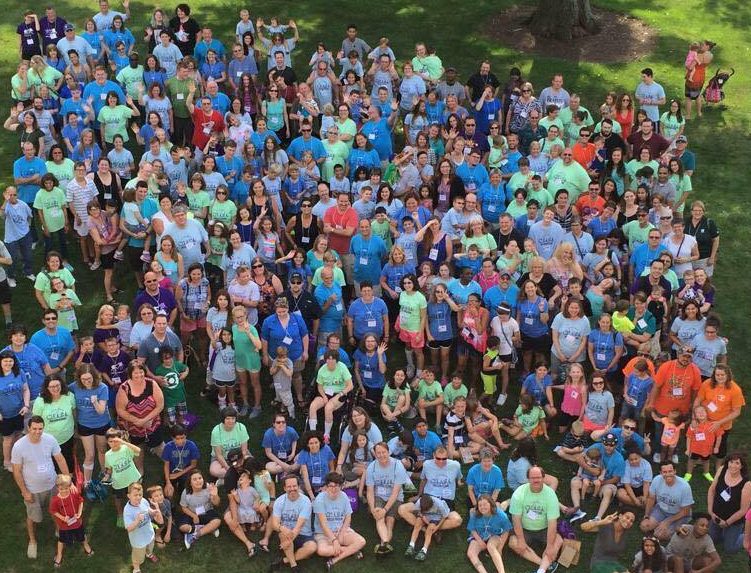
If your child has recently received a diagnosis of hemiplegia or hemiparesis you’re probably experiencing a variety of emotions – grief, denial, guilt, blame, sadness, worry, anxiety, confusion, and more. If your child is a newborn, these may be mingled with joy and happiness. You probably have hundreds of questions about the condition, the prognosis, and available treatments. CHASA is here to help you, to offer hope, and to provide information and resources that may be useful to you in your journey. We want you to know that you’re not alone. CHASA serves over 3000 families of children who have hemiplegia. This page is a collection of helpful hints from parents of other kids who have hemiplegia or hemiparesis.
What do I do next?
- Find a support system – in your community and online
- Connect with medical professionals
- Sign up for Early Intervention Services and special financial programs
- If you need help with obtaining services or feel that your child is being discriminated against, contact your state’s advocacy and protection agency
- Learn the lingo
- Love and enjoy your baby – don’t get lost in the medical treatments – live life first!
I’m Worried
 You’re probably worried about your child’s future – will he talk, walk, be potty trained, learn, drive, go to college and eventually live independently. Each child is unique, but we can share with you that almost all children who have hemiplegia do learn to walk. Most are potty trained, although a little later than peers. Some children have problems with speech or language. Some children have learning differences. Most children with hemiplegia graduate from high school. Some teens and adults with hemiplegia drive. Some young adults with hemiplegia go to college. Some get master’s degrees. Some marry and have children. A few children with hemiplegia don’t do any of these things, yet they’re still happy and productive people. Hold onto hope!
You’re probably worried about your child’s future – will he talk, walk, be potty trained, learn, drive, go to college and eventually live independently. Each child is unique, but we can share with you that almost all children who have hemiplegia do learn to walk. Most are potty trained, although a little later than peers. Some children have problems with speech or language. Some children have learning differences. Most children with hemiplegia graduate from high school. Some teens and adults with hemiplegia drive. Some young adults with hemiplegia go to college. Some get master’s degrees. Some marry and have children. A few children with hemiplegia don’t do any of these things, yet they’re still happy and productive people. Hold onto hope!
- Whatever caused the hemiplegia was not your fault. You love your child and did not deliberately try to hurt him or her. Your child’s hemiplegia was not due to something you ate or did while you were pregnant.
 Moms and dads seem to cope with the diagnosis in different ways and that’s normal and to be expected. Do not let your child’s diagnosis drive you apart. Realize that you both have your own ways of coping and this is really okay. If your spouse doesn’t want to talk about it, then find another parent who has a child with special needs and talk with them. Or, talk with a therapist or someone at your place of worship.
Moms and dads seem to cope with the diagnosis in different ways and that’s normal and to be expected. Do not let your child’s diagnosis drive you apart. Realize that you both have your own ways of coping and this is really okay. If your spouse doesn’t want to talk about it, then find another parent who has a child with special needs and talk with them. Or, talk with a therapist or someone at your place of worship.- Some parents wonder about the best way to share this diagnosis with friends and family. Your friends and family will react in many different ways – some will deny that anything is wrong and will drive you crazy with, “He looks just fine” comments. Others will act like your child has some dread disease and they will feel uncomfortable for awhile. Others will rally around and support you. One will probably want to start a non-profit to raise awareness. Most will not really “get it” and you’ll find more specific kinds of support from other parents who have a child with hemiplegia.
- Sometimes feelings can become overwhelming. If at any time during this journey you begin to feel that you need help in dealing with your feelings, please seek out a professional counselor who can help you explore additional ways to cope.
Doctors and Therapy
 Place your child’s name on all Medicaid Waiver lists in your state. We can’t begin to say this enough times. Place your child’s name on all Medicaid Waiver lists in your state! Medicaid Waivers are based on the child’s income (usually zero), not the parent’s income. These waivers may pay for a variety of things: co-pay or deductible after your insurance has paid (if you have insurance), prescription cost after your insurance has paid, attendants to come into the home so you can take a nap or run an errand, specialized therapy like massage therapy, music therapy, hippotherapy, aquatic therapy, and recreational therapy, respite care so you and your spouse can have some time together, home modifications, car modification, adaptive equipment, and more. Information on Medicaid Waiver lists can be found on the CHASA Resources in Your State page.
Place your child’s name on all Medicaid Waiver lists in your state. We can’t begin to say this enough times. Place your child’s name on all Medicaid Waiver lists in your state! Medicaid Waivers are based on the child’s income (usually zero), not the parent’s income. These waivers may pay for a variety of things: co-pay or deductible after your insurance has paid (if you have insurance), prescription cost after your insurance has paid, attendants to come into the home so you can take a nap or run an errand, specialized therapy like massage therapy, music therapy, hippotherapy, aquatic therapy, and recreational therapy, respite care so you and your spouse can have some time together, home modifications, car modification, adaptive equipment, and more. Information on Medicaid Waiver lists can be found on the CHASA Resources in Your State page.
- Children with hemiplegia usually have physical therapy, occupational therapy, and sometimes speech therapy. They’re often followed by a pediatrician and a pediatric neurologist (for awhile, unless they’re having seizures).
- Some children also see a developmental pediatrician, physiatrist, pediatric opthamologist (vision), orthotist (makes braces and splints), and a pediatric orthopedic surgeon.
- Selecting a Doctor or Therapist for Your Child with Hemiplegia
- Some children with hemiplegia develop seizures. Try not to spend all day and night watching your child to see if he or she is going to have a seizure. Educate yourself – learn about what to watch for and then try not to worry. If your child does develop seizures, there are medications that can help control them.
- Keep a binder and ask for a copy of every medical report, test results, and office notes. Get copies of all scans on a disc. Take the binder with you to all doctor visits.








